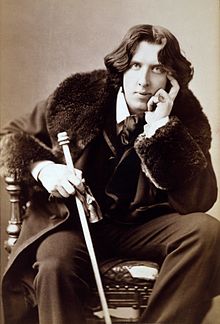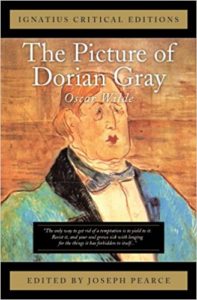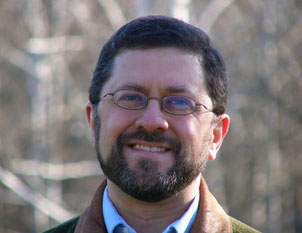Podcast: Play in new window | Download (Duration: 28:29 — 26.1MB) | Embed
Subscribe: Apple Podcasts | Spotify | Amazon Music | Android | Pandora | iHeartRadio | JioSaavn | Podchaser | Gaana | Podcast Index | Email | TuneIn | Deezer | Anghami | RSS | More

Episode 4 – Great Works in Western Literature with Joseph Pearce podcast – Oscar Wilde and “The Picture of Dorian Gray”
In true Faustian tradition, The Picture of Dorian Gray authored by Oscar Wilde tells the tale of a young man who sells his soul to the devil in return for youthful immortality, only to discover that the “devil’s bargain” is no bargain at all. “What does it profit a man if he gains the whole world and loses his own soul?

When Dorian Gray is asked this question he knows the answer. He has learned his lesson the hard way and has added the destroyed lives of others into the bargain. The moral is inescapable, making The Picture of Dorian Gray more than merely a classic of Victorian literature. It is a classic of Christian literature also. Joseph Pearce can speak about the heart and mind of Oscar Wilde in a unique way, he is the author of “The Unmasking of Oscar Wilde”
 Based on the Ignatius Critical Edition, this series examines, from the Judeo-Christian perspective, the life, the times, and influence of authors of great works in literature.
Based on the Ignatius Critical Edition, this series examines, from the Judeo-Christian perspective, the life, the times, and influence of authors of great works in literature.
Joseph Pearce is currently the Writer-in-Residence and Visiting Fellow at Thomas More College of Liberal Arts in Merrimack, New Hampshire. He is also Visiting Scholar at Mount Royal Academy in Sunapee, New Hampshire. He is also Visiting Scholar at Mount Royal Academy in Sunapee, New Hampshire. He is co-editor of the Saint Austin Review (or StAR), an international review of Christian culture, literature, and ideas published in England (Family Publications) and the United States (Sapientia Press). He is also the author of many books, including literary biographies of Solzhenitsyn, J. R. R. Tolkien, C. S. Lewis, G. K. Chesterton, and Oscar Wilde.
To learn more about the authors and titles available in the Ignatius Critical Editions






